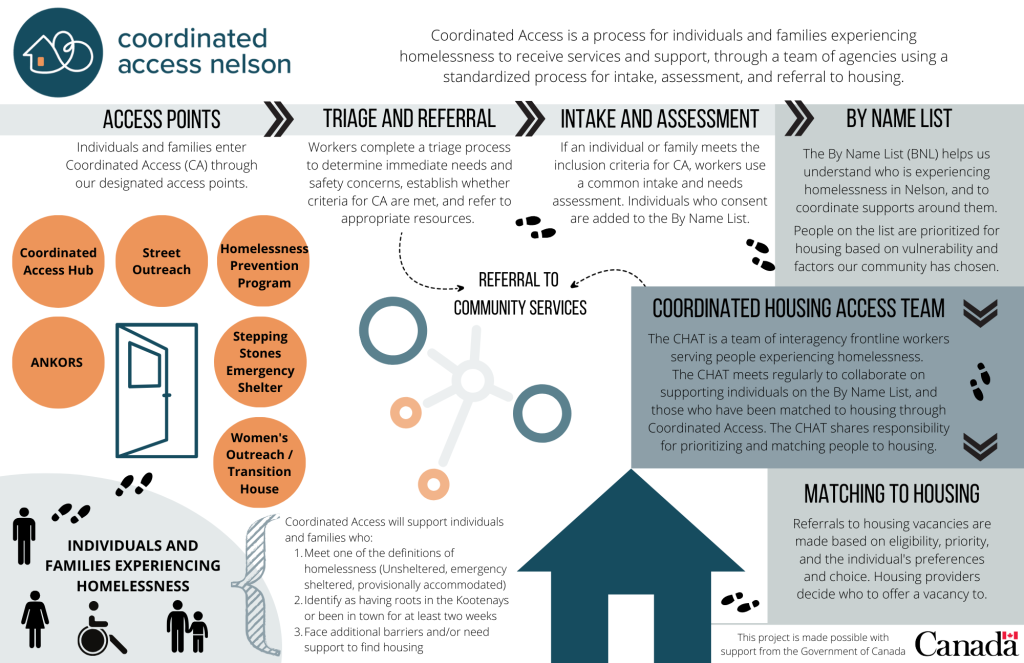Project Description

Reaching Home: Canada’s Homelessness Strategy
Homelessness has an economic and social impact on every community in Canada. The Government of Canada is committed to helping those who are in need and believes that one person who is homeless is one too many.
In June 2018, the Government of Canada announced bold changes to the federal strategy to prevent and reduce homelessness. Reaching Home, the Government of Canada’s redesigned homelessness strategy, doubles support for communities to address the needs of those experiencing or at-risk of homelessness. It replaced the Homelessness Partnering Strategy and officially launched on April 1, 2019. Reaching Home is designed to support the goals of the National Housing Strategy and puts communities at the forefront of tackling homelessness.
Building on the successful adoption of Housing First as a best practice, the Government will work with communities to develop and deliver data-driven community plans with clear outcomes. Reaching Home also introduces Coordinated Access as a program priority. Adopting a federal focus on this approach was a key recommendation of the Advisory Committee on Homelessness.1
1 Employment and Social Development Canada. “Advisory Committee on Homelessness – Final Report 2018.” https://www.canada.ca/en/employment-social-development/ programs/communities/homelessness/publications-bulletins/advisory-committee-report.html
The goal of Coordinated Access is to help communities ensure equity of access to appropriate resources, prioritize people most in need of assistance and connect people to appropriate services in a more streamlined way. Communities participating in Reaching Home will work toward four core outcomes including: chronic homelessness in the community is reduced; homelessness in the community is reduced overall and for priority populations (e.g. individuals who identify as Indigenous); new inflows into homelessness are reduced; and returns to homelessness are reduced.
The new outcomes-based approach will give communities greater flexibility to identify, test, and apply innovative solutions and evidence-based practices that achieve results for vulnerable people. This means developing targeted responses for various populations, such as Indigenous people, youth, LGBTQ2S communities, immigrants and refugees, survivors of domestic violence, racialized communities, veterans and people with disabilities.
The shift to Coordinated Access supports an integrated systems-based approach where service providers, local communities and orders of government work together to achieve common goals. With Coordinated Access, communities will gather comprehensive data on their local homeless population. In time, communities will be able to establish baselines against which progress will be measured. Communities will be able to monitor trends at the community level, allowing for the sharing of successes as well as determining where more focus or a change in course is needed.
For a copy of the Reaching Home Coordinated Access Guide, click here.
Contact us about: coordinatedaccess@nelsoncares.ca

NCOH is the Community Advisory Board (CAB) for federal Reaching Home funding for Nelson.
NCOH projects are administered through the Nelson CARES Society, as decided by the CAB.
The opinions and interpretations expressed are those of the author and do not necessarily reflect those of the Government of Canada.